Looking to install your own wrought iron fence, but you aren’t sure what you’ll need? We dive into the details to guide you through the materials and tools typically needed to install one of our DIY Stronghold Iron® fences.
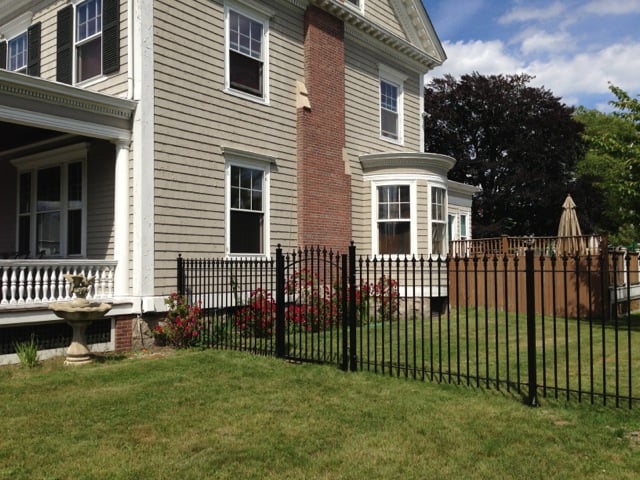
This will cover a standard DIY installation of our Stronghold Iron® fence where the posts are being buried in the ground. We will cover gates and surface mounted posts in an upcoming blog posting.
Let’s start with the materials that we will be providing you for the project:
- Iron Fence Panels
- Iron Fence Brackets
- Iron Fence Self-Tapping Bracket Screws
- Steel Posts
- Iron Post Caps
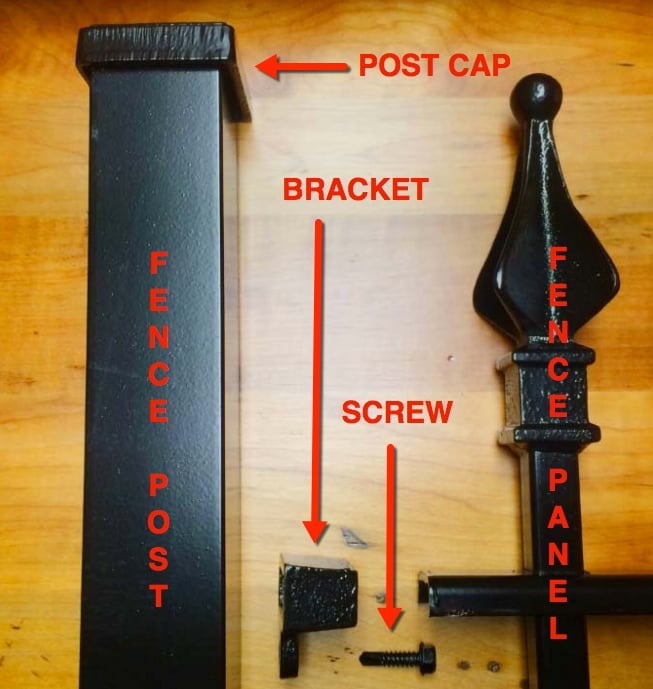
Iron Fence Panels
Our iron fence panels come fully welded and fully finished. There is no assembly or welding required as we’ve already done all the work for you!
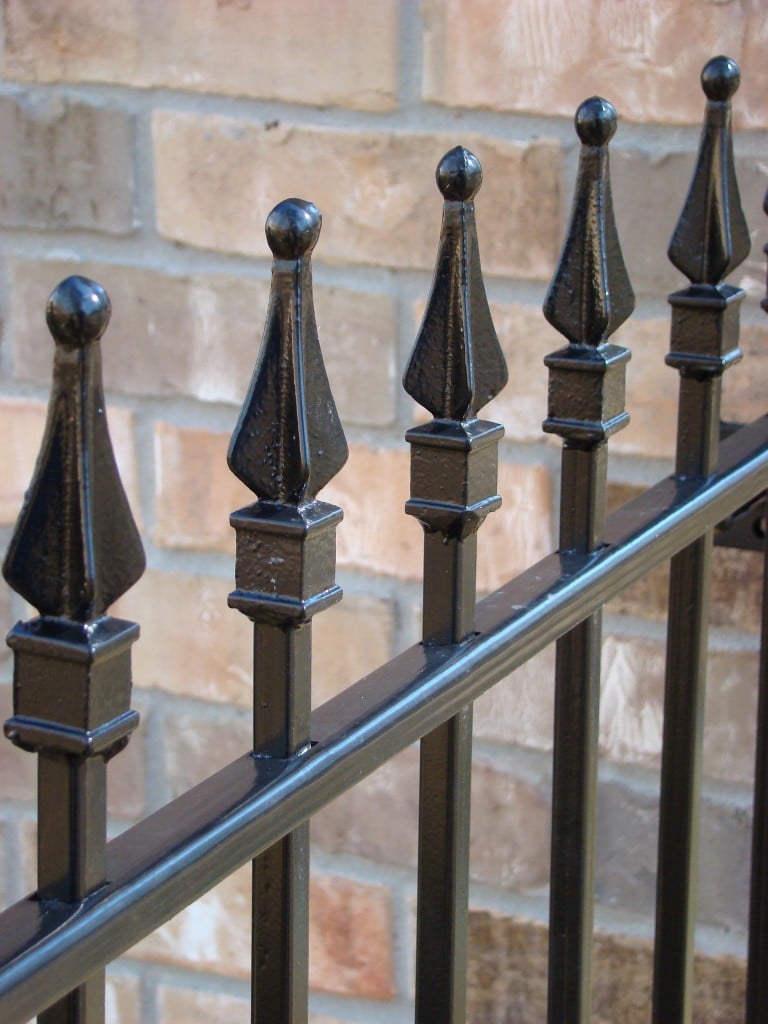
Iron Fence Brackets
Unlike our competitor’s cheap looking stamped steel brackets, we provide a solid cast iron bracket that completely covers the end of the rail and tucks the connection point below. The brackets come loose and slide onto the end of the rails. This makes trimming your fence panels for width a no-hassle process since you can slide the bracket right on a trimmed piece the same way you do on a full sized fence panel.
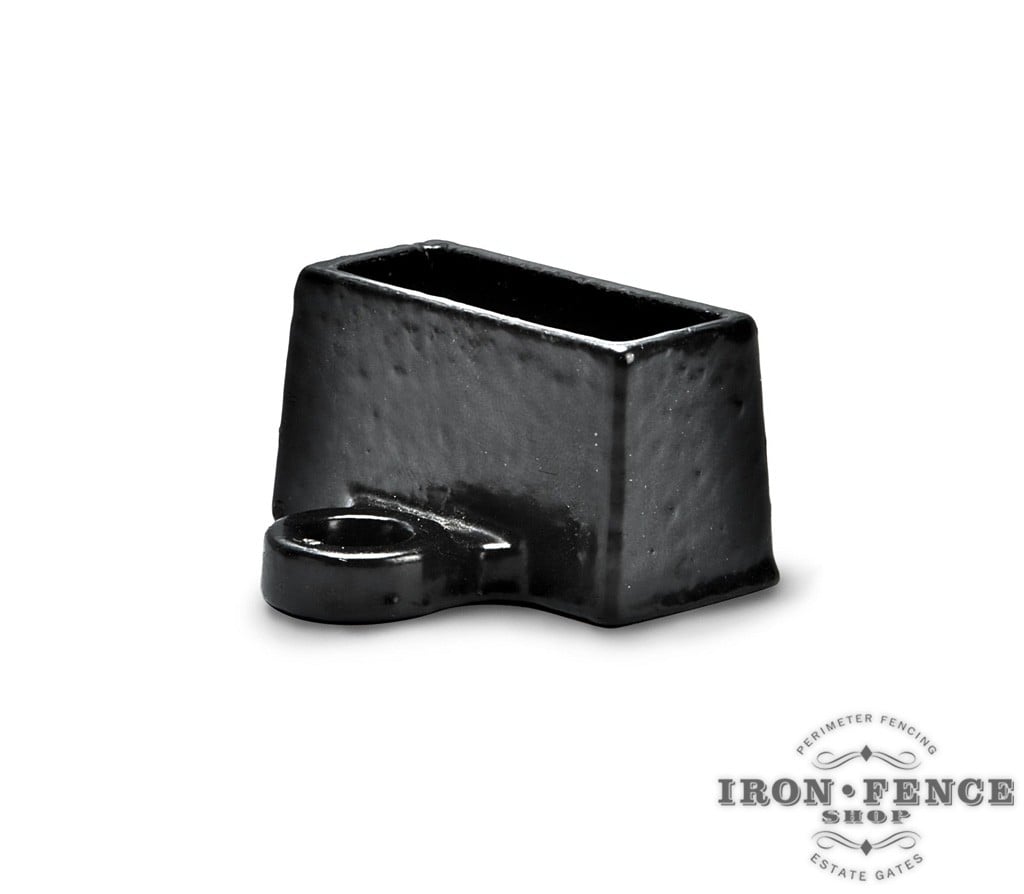
Iron Self-Tapping Bracket Screws
We provide a black anodized self-tapping screw with a hex-head on it for securing the fence panel bracket to the post. The hex head is much stronger than a screw style head that can strip out when power tools are used. The self-tapping style means no pre-existing or pilot holes to line up with. The screw will drill the hole in the post and tap its own threads.
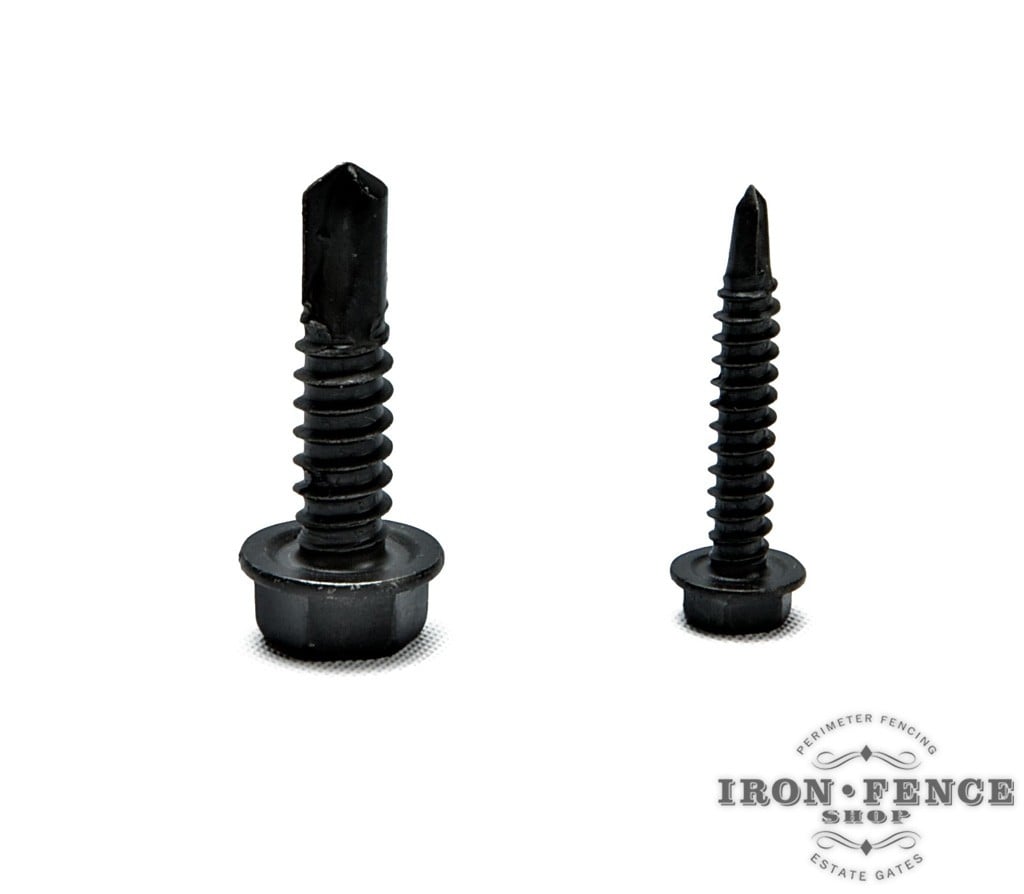
Steel Posts
The steel fence posts will come loose and without a cap on them. Depending on what part of the country you are in, they will be buried 2ft-3ft in ground. All of our iron posts are considered ‘blank’. There are no pre-drilled holes and the post can be used in any position (line, end, corner) in the layout.
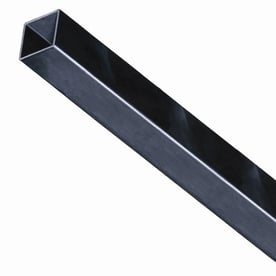
Iron Post Caps
The reason we do not ship the steel posts with the cap attached is because you have an option between our standard/ flat style and the ball style. The are affixed to the top of the post via an adhesive we supply in your install kit. While you can use a self-tapping screw to secure the post cap, we recommend using the adhesive as it will allow for a clean and straight fit. Using a screw can sometimes pull the cap to one side slightly when you tighten it down.
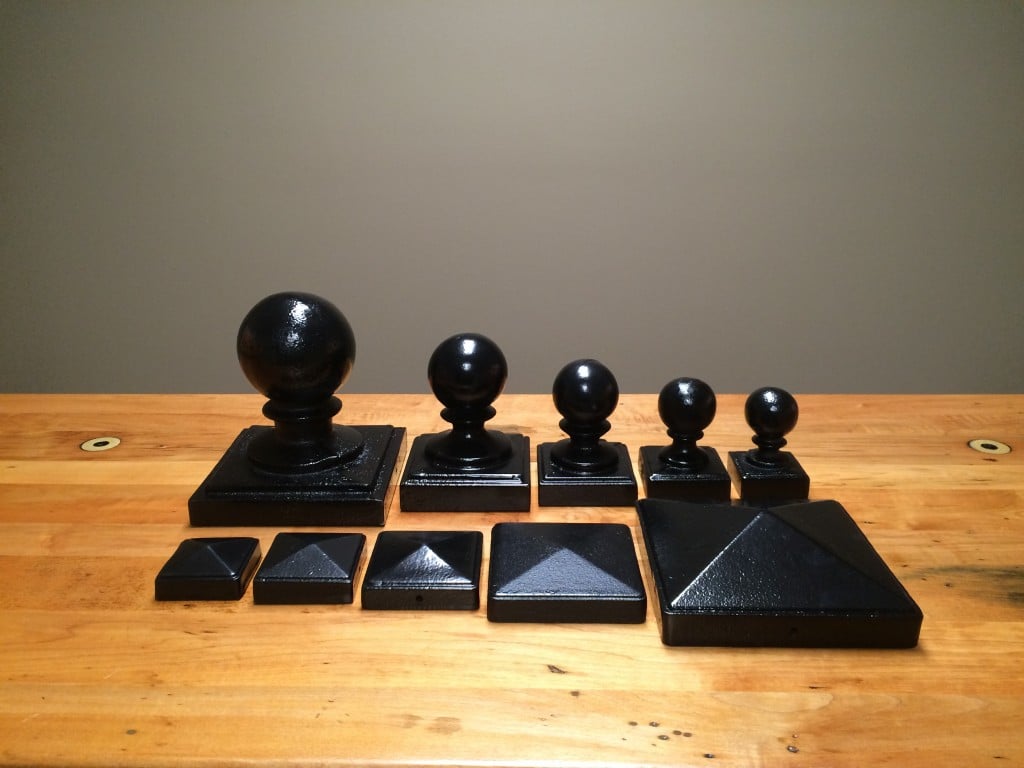
What Tools and Materials Do I Need Provide?
So now that you know what we are providing, the next question you have is probably about what tools and materials you will need to have ready on your end. Luckily, installing our Stronghold Iron® fence doesn’t require anything too exotic. Here are the tools and materials you will commonly need:
- Cement – You can find all sorts of online calculators that will help you calculate how many bags you need. Just about any type of cement will work
- Bagged Gravel – This is optional, but useful for fine-tuning the depth of your post hole if you over-dig the depth accidentally. Any larger river gravel is good. Stay away from smaller fill or pea gravel that is too small
- Post Hole Digging Tool – You can usually find these for under $30 at any big box hardware store next to the shovels and rakes. For those not wanting the workout, you can also usually rent a powered post hole digger from places like Home Depot, Sunbelt or United Rentals
- Cement Mixing Tools – This varies a bit depending how you like to mix your cement, but usually isn’t much more than a wheelbarrow or tub to mix in, a shovel for mixing and scooping, plus a hose or bucket for supplying water
- Cutting Tools – Most installations require a fence panel or two to be trimmed for width. Luckily, this is super easy to do with our iron fence panels. You could go as simple as a hacksaw or use a power tool like a sawzall (reciprocating saw) or cut-off wheel. So long as it can make a straight, clean cut through steel you should be good to go
- Power Driver/ Drill – You will use this for driving the self-tapping screws into the post when you mount your panels.
- Tape Measure – You will use this for measuring the depth of your post hole as well as the spacing between the posts
- Level – You will use this when you set your fence posts in the cement to ensure your posts are nice and level
- String Line – This can be any kind of string or line. You will string it between rebar you tap in the ground and the string will act as a guideline for your posts to ensure your fence line stays nice and straight
- Rebar – This can be found in any big box home store cut into short sections and is usually near the cement and concrete. You will hammer these into the ground and wrap your string line around them to form your layout guide line
- Rubber Mallet and Hammer – The rubber mallet makes adjusting your posts in the cement for level easier than hands alone and won’t leave marks on the post’s finish. The hammer will be used for tapping your rebar into the ground
And That’s It…
There really aren’t a lot of parts to the iron fencing and a majority of the tools needed are something most folks already own or are inexpensive to buy. If you want some more details on how it all installs, you can visit our installation page and download our install guides, read the FAQs or watch some of our videos.
Don’t be afraid to tackle it on your own! You can save about 50% of the typical fence project cost, by doing it yourself. Our Stronghold Iron® is extremely DIY friendly. Don’t believe me? Check out our Photo Gallery. 95% of those photos are from homeowners who tackled it themselves and then shared the finished product with us. Still don’t believe me? Check out out Testimonials page and see what other DIY minded folks had to say after finishing the project.
If you still aren’t sure, you can always give us a call at 800-261-2729 or shoot us an email at [email protected] to ask our experienced staff any questions you may have about installing the fence on your own. We’re here to help!
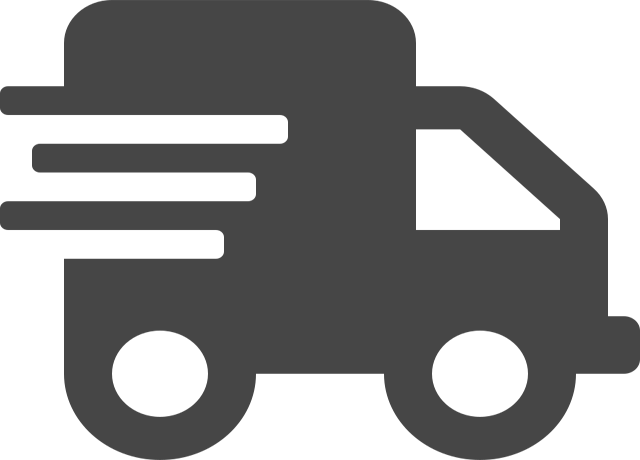 Free Shipping over $5,000
Free Shipping over $5,000
 15 Years in Business
15 Years in Business
 18mo No Interest Financing
18mo No Interest Financing


